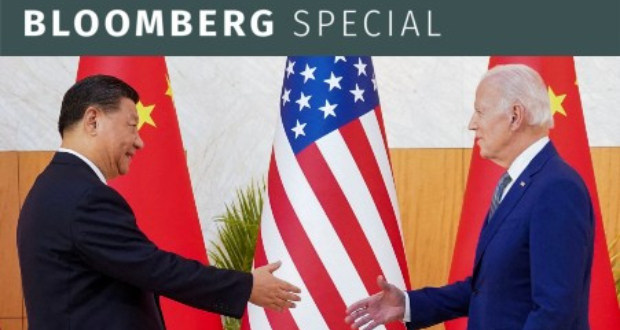It's been a long road to this point, and it's been stunning to see how much the landscape has changed in the year since the leaders last met face-to-face in Bali.
Xi is even set to dine with top American business executives in California during the summit — an event I would have thought impossible just nine months ago when the Pentagon shot down an alleged Chinese surveillance balloon and tensions seemed to be at their worst since two military planes collided over the South China Sea back in 2001.
But here we are.
A slew of high-level meetings in recent months "have sent out positive signals and raised the expectations of the international community on the improvement of China-US relations," Chinese Vice President Han Zheng has said at the Bloomberg New Economy Forum in Singapore.
Now we'll have to see what comes of the talks between the two men at the top. Here's a look at what they are likely trying to achieve at APEC:
What Xi wants
1. Calm foreign investors: Beijing is struggling to lure foreigners back as data shows more direct investment flowing out of the country than coming in. Western executives in China are growing increasingly nervous about doing business there because of exit bans, probes and even employee detentions.
2. End trade tariffs: Biden has largely kept intact tariffs on a range of Chinese goods Trump imposed in July 2018. With Trump — who is outpolling Biden in some US swing states, pledging to double down on tariffs if he is elected next year, there is little political incentive to change the status quo — I spoke to one GM of a company involved in sourcing for US manufacturers who told me the curbs have led to supply chain shifts to places like Southeast Asia and Mexico.
3. Remove technology curbs: The Biden administration has levied export controls that prevent Chinese companies from acquiring certain advanced semiconductors and chipmaking equipment, among other measures. Beijing seems to have acknowledged such restrictions aren't going away, given efforts to pump billions of dollars into domestic chip plants.
What Biden wants
1. Resumption of military talks: Xi froze high-level military talks with the US in August 2022 after then-House Speaker Nancy Pelosi visited Taiwan. With the Chinese defence minister post vacant after the removal of US-sanctioned Li Shangfu, a counterpart who can meet with Washington's Lloyd Austin is still anyone's guess. The South China Sea and Taiwan remain potential flashpoints in the relationship.





